
Jizan: The Hidden Gem of Saudi Arabia's Red Sea Coast
Nestled along the southwestern coast of Saudi Arabia, Jizan is a city that offers a unique blend of natural beauty, rich culture, and a touch of modernity. Known for its lush landscapes and stunning Red Sea coastline, Jizan is an ideal destination for those who seek both relaxation and adventure. The city is often referred to as the 'Pearl of the South,' and for good reason. With its pristine beaches, verdant mountains, and vibrant coral reefs, Jizan provides a picturesque backdrop for a memorable vacation. One of the highlights of visiting Jizan is exploring its natural wonders. The Farasan Islands, a short boat ride away, are a must-see. These islands are a sanctuary for wildlife and offer some of the best snorkeling and diving spots in the region. The crystal-clear waters are home to a variety of marine life, making it a paradise for underwater enthusiasts. On land, the Jizan Valley is a lush area filled with farms and plantations, offering a serene escape into nature. Culturally, Jizan is a treasure trove. The city is steeped in history, with roots that trace back to ancient civilizations. Visitors can explore historical sites like the Ottoman Castle and the ancient village of Al Qassar. The local markets, or souks, are bustling with activity and offer a glimpse into traditional Saudi life. Here, you can find everything from handcrafted goods to aromatic spices. Jizan's culinary scene is another aspect that shouldn't be missed. The city is famous for its seafood, thanks to its coastal location. Local dishes like 'Sayadiyah,' a flavorful fish and rice dish, are a must-try. The city's restaurants range from upscale dining to charming local eateries, ensuring that every palate is satisfied.
Local tips in Jizan
- Visit the Farasan Islands early in the morning to avoid crowds and enjoy the best snorkeling and diving conditions.
- Wear modest clothing, especially when visiting cultural and historical sites. Respecting local customs is important.
- Try local seafood dishes at the Jizan Fish Market for an authentic culinary experience.
- Plan your visit during the cooler months, from November to March, to enjoy outdoor activities comfortably.
- Hire a local guide to explore the Jizan Valley and learn about the region's agricultural practices and history.
Jizan: The Hidden Gem of Saudi Arabia's Red Sea Coast
Nestled along the southwestern coast of Saudi Arabia, Jizan is a city that offers a unique blend of natural beauty, rich culture, and a touch of modernity. Known for its lush landscapes and stunning Red Sea coastline, Jizan is an ideal destination for those who seek both relaxation and adventure. The city is often referred to as the 'Pearl of the South,' and for good reason. With its pristine beaches, verdant mountains, and vibrant coral reefs, Jizan provides a picturesque backdrop for a memorable vacation. One of the highlights of visiting Jizan is exploring its natural wonders. The Farasan Islands, a short boat ride away, are a must-see. These islands are a sanctuary for wildlife and offer some of the best snorkeling and diving spots in the region. The crystal-clear waters are home to a variety of marine life, making it a paradise for underwater enthusiasts. On land, the Jizan Valley is a lush area filled with farms and plantations, offering a serene escape into nature. Culturally, Jizan is a treasure trove. The city is steeped in history, with roots that trace back to ancient civilizations. Visitors can explore historical sites like the Ottoman Castle and the ancient village of Al Qassar. The local markets, or souks, are bustling with activity and offer a glimpse into traditional Saudi life. Here, you can find everything from handcrafted goods to aromatic spices. Jizan's culinary scene is another aspect that shouldn't be missed. The city is famous for its seafood, thanks to its coastal location. Local dishes like 'Sayadiyah,' a flavorful fish and rice dish, are a must-try. The city's restaurants range from upscale dining to charming local eateries, ensuring that every palate is satisfied.
When is the best time to go to Jizan?
Iconic landmarks you can’t miss
Al Rashid Mall JAZAN
Discover the ultimate shopping experience at Al Rashid Mall Jazan, where modern retail meets local culture in a vibrant atmosphere.
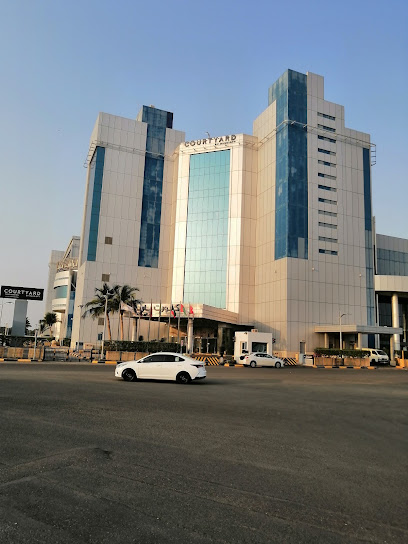
Kadi Mall | كادي مول
Discover shopping bliss at Kadi Mall in Jazan, where fashion meets local culture and dining delights await.
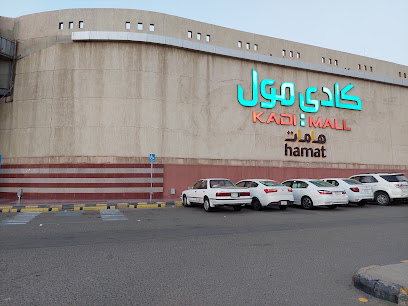
Novotel Jazan
Experience unparalleled luxury and comfort at Novotel Jazan, your premier hotel destination in the heart of Saudi Arabia's vibrant Jazan city.
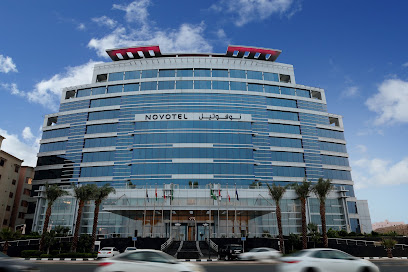
Radisson Blu Resort Jizan
Experience luxury and tranquility at Radisson Blu Resort Jizan, a beachfront retreat offering stunning views and world-class amenities in Saudi Arabia.
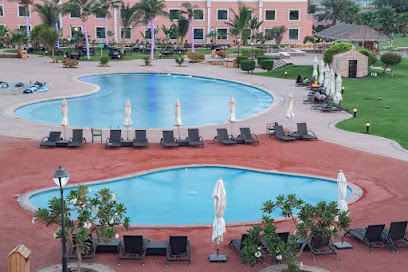
King Abdullah bin Abdulaziz International Airport
Discover Jazan's beauty and culture while enjoying modern amenities at King Abdullah bin Abdulaziz International Airport.
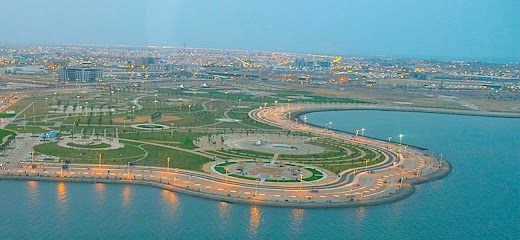
سوق الاسماك بجيزان
Explore the vibrant flavors of the Red Sea at Jazan's Seafood Market, where fresh catches meet local culture in an unforgettable experience.
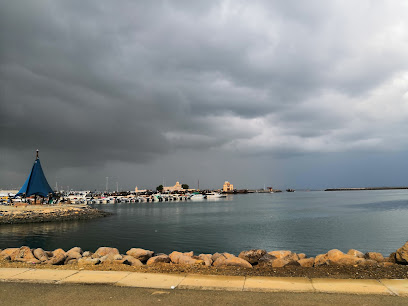
Al marjan Park
Explore the serene beauty of Al Marjan Park, a lush garden and public beach oasis in Jazan, perfect for relaxation, family outings, and scenic views.
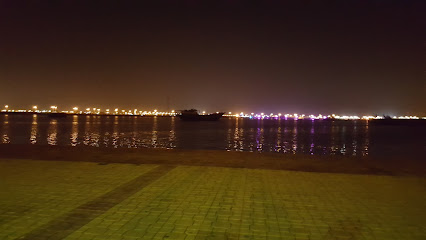
The Corniche Park
Discover the beauty of The Corniche Park in Jazan, a perfect blend of nature, recreation, and stunning waterfront views.
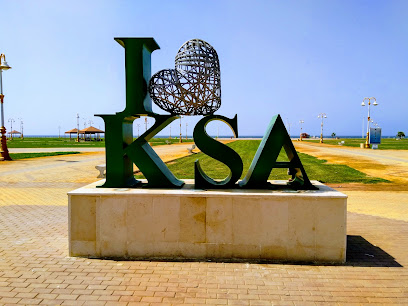
Tourism Dreams Park & Marsa
Discover the essence of luxury and relaxation at Tourism Dreams Park & Marsa, a premier resort hotel in Jazan, Saudi Arabia.
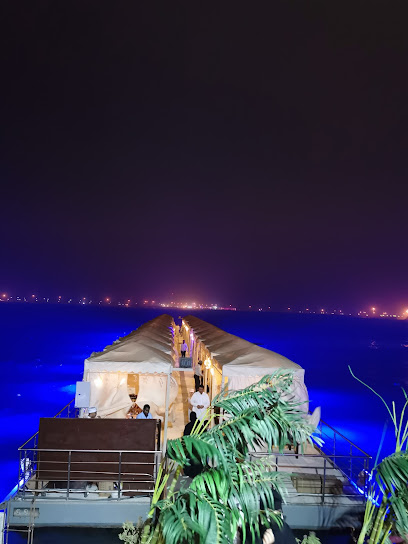
Courtyard Jazan
Discover the perfect blend of comfort and convenience at Courtyard Jazan, your ideal hotel choice in the heart of Jazan.
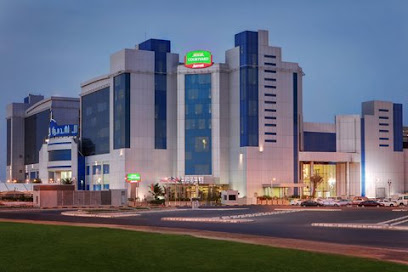
Awqat Saeeda Theme Park
Discover family fun and thrilling rides at Awqat Saeeda Theme Park in Jazan, a perfect destination for laughter and lasting memories.
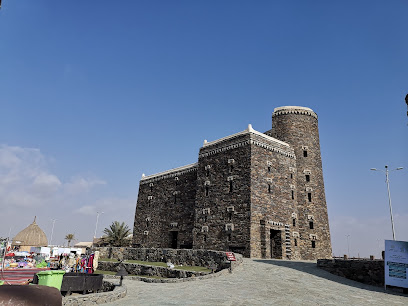
Northern Sea Front
Discover the serene beauty of Northern Sea Front in Jazan, a coastal park offering stunning views, lush greenery, and a tranquil atmosphere for relaxation.
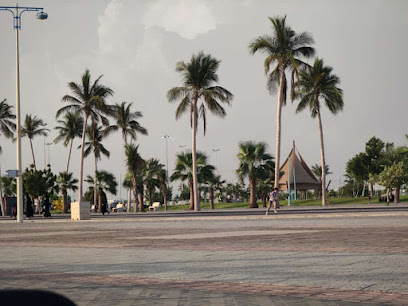
Adosareyah Castle
Discover the majestic Adosareyah Castle in Jazan, Saudi Arabia, a historical gem that showcases the rich heritage and stunning architecture of the region.
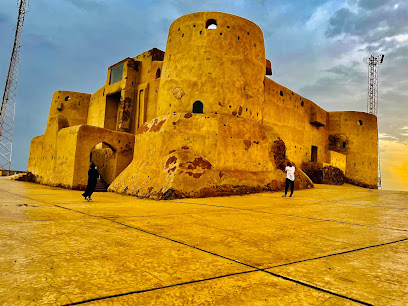
Lake of Jazan Dam
Experience the natural beauty and tranquility of Lake of Jazan Dam, a perfect getaway for nature lovers and families seeking adventure in Saudi Arabia.
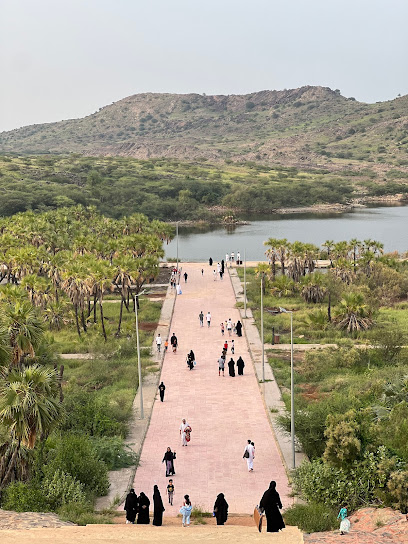
القرية التراثية
Explore القريه التراثية, a cultural gem in Jazan showcasing the region's rich heritage through architecture, crafts, and cuisine.
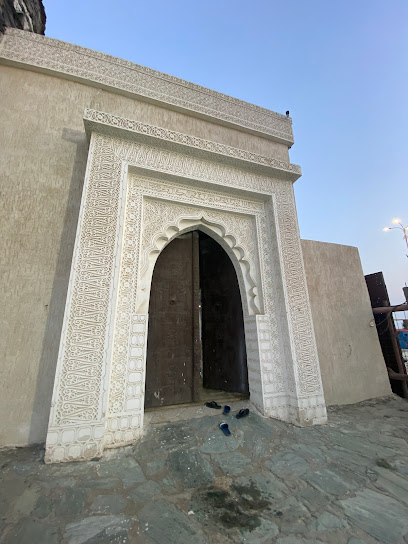
Unmissable attractions to see
Heritage Village
Explore the vibrant culture and heritage of Saudi Arabia at Heritage Village, a captivating tourist attraction in Jazan, showcasing traditional architecture and local cuisine.
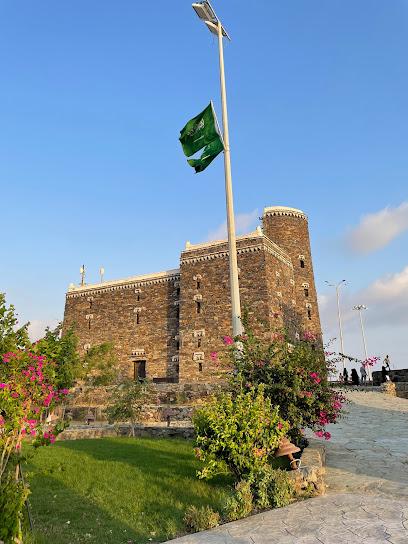
Al marjan Park
Discover the tranquil beauty of Al Marjan Park in Jazan, where lush gardens and serene landscapes create the perfect escape for nature lovers and families.
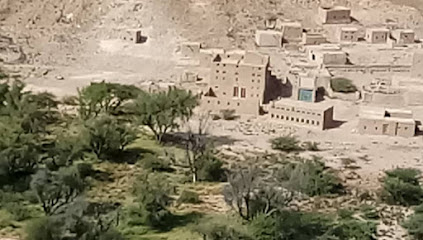
The Corniche Park
Experience the beauty and tranquility of The Corniche Park in Jazan, a perfect escape for nature lovers and adventure seekers alike.
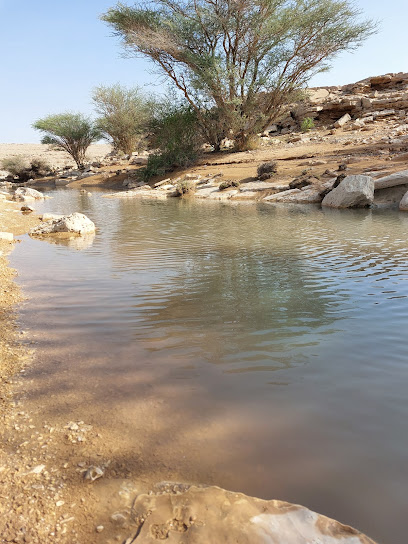
Awqat Saeeda Theme Park
Discover thrilling rides and family fun at Awqat Saeeda Theme Park in Jazan, a perfect destination for adventure seekers and family outings.
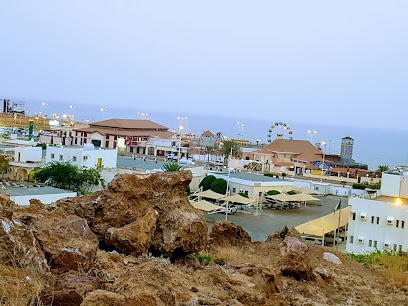
Lake of Jazan Dam
Explore the mesmerizing Lake of Jazan Dam, a scenic park that offers tranquility, outdoor activities, and breathtaking vistas in Saudi Arabia.
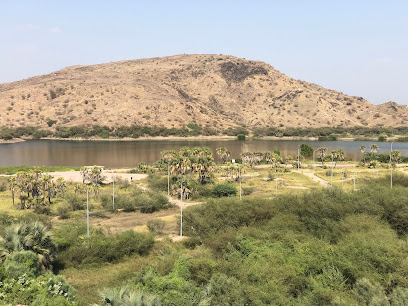
القرية التراثية
Experience the rich heritage of Saudi Arabia at القريّة التراثية, a captivating cultural destination in Jazan perfect for every traveler.
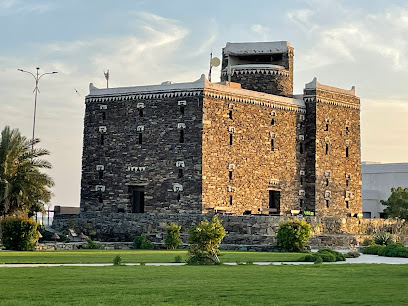
South Corniche Waterfront
Explore the idyllic South Corniche Waterfront in Jazan, where lush landscapes meet stunning Red Sea views, perfect for relaxation and recreation.
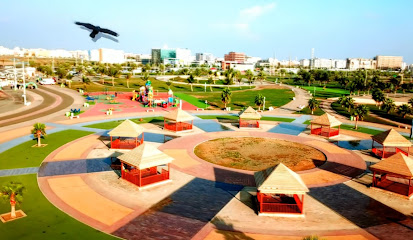
وادي لجب Wadi Lajb
Explore the stunning natural beauty of Wadi Lajb, a hidden gem in Jizan, Saudi Arabia, perfect for adventure seekers and nature lovers alike.
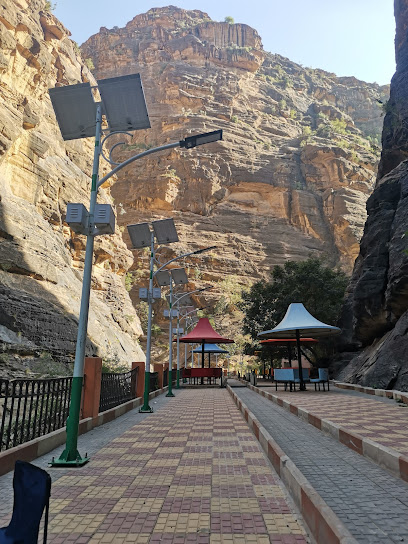
Al Khazzan Park
Explore the lush landscapes and serene ambiance of Al Khazzan Park, a perfect retreat for nature lovers in Jazan, Saudi Arabia.
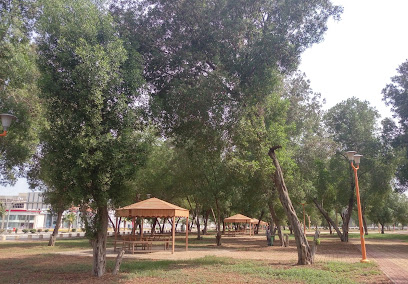
Southern Corniche
Explore the beauty of Southern Corniche in Jazan, a coastal park perfect for relaxation, family picnics, and breathtaking views of the Red Sea.
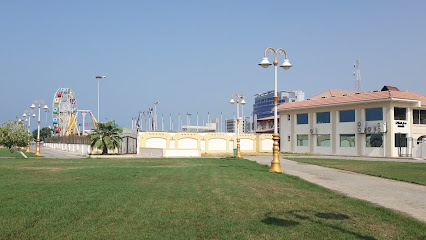
ممر داخل البحر
Discover the stunning Corniche of Jazan, a vibrant seaside promenade perfect for relaxation, adventure, and authentic local experiences.
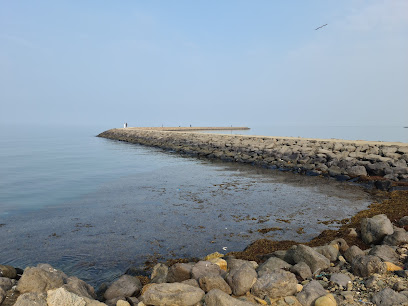
Jizan Museum
Discover the rich heritage of the Jizan region at the Jizan Museum, where history, culture, and art come alive in captivating exhibits.
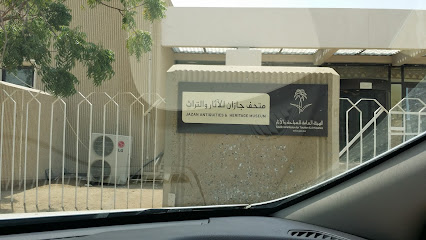
نافورة العادلي و الانيس
Discover the stunning Al-Adliya and Al-Inis Promenade in Jazan, where coastal beauty meets rich culture for an unforgettable experience.
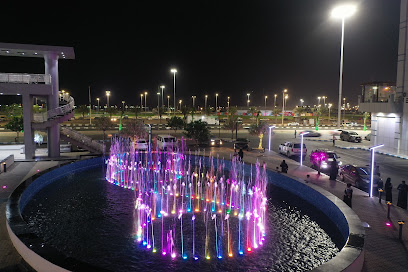
ارجوان البحار
Discover the breathtaking beauty of Arjwan Al-Bahar, a serene coastal gem in Jazan perfect for relaxation, adventure, and unforgettable sunsets.
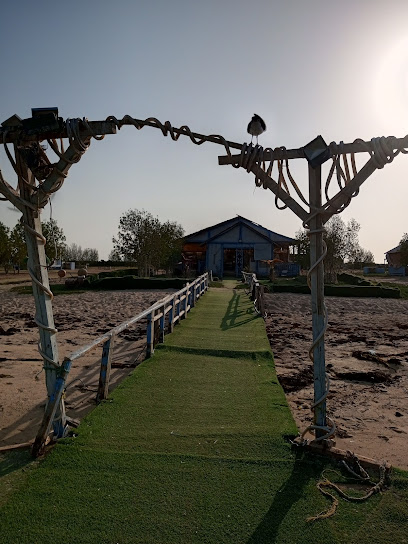
Activities zone
Experience endless fun and excitement at the Activities Zone in Jazan, where adventure awaits for everyone!
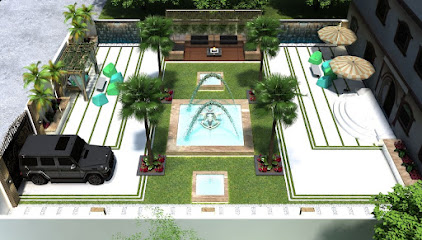
Essential places to dine
Albaik
Experience the best of fast food at Albaik in Jazan, where every bite of delicious fried chicken tells a story of flavor and tradition.
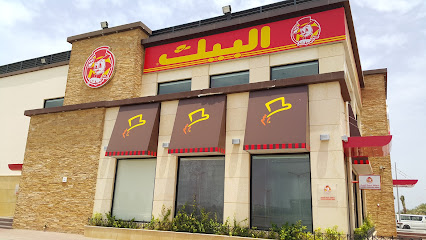
مطعم لؤلؤة صدفة الساحل
Experience authentic Saudi flavors at مطعم لؤلؤة صدفة الساحل in Jazan – where every meal tells a story.
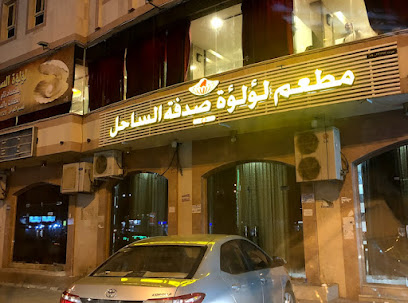
Happy times Fish Restaurant
Experience exquisite seafood dining at Happy Times Fish Restaurant in Jazan—where every dish celebrates fresh flavors and local culinary traditions.
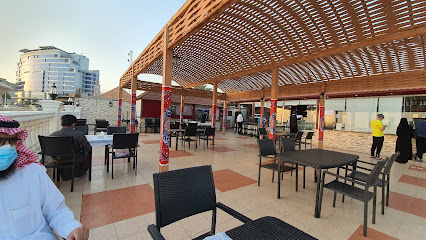
مطعم كايا | Kaya Restaurant
Discover the exquisite flavors of Kaya Restaurant in Jazan – where fine dining meets exceptional service.
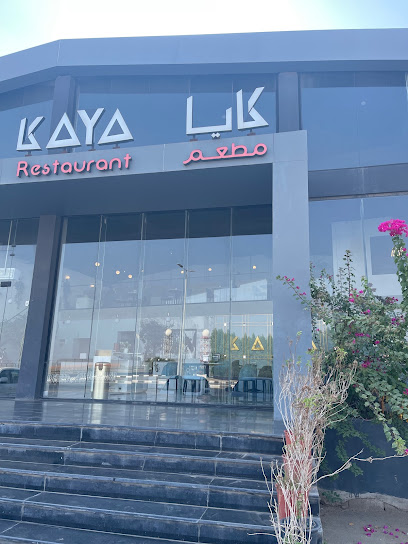
مطعم طباخ بهارات الهندي
Discover authentic Pakistani and Indian flavors at مطعم طباخ بهارات الهندي in Jazan - where every dish tells a story.
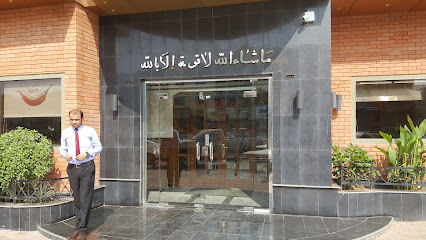
Applebee's
Savor delicious American cuisine at Applebee's in Jazan – where flavor meets comfort in a vibrant setting.
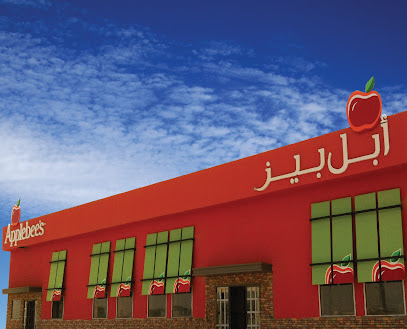
Taste of spices
Experience the authentic flavors of India at Taste of Spices in Jazan – where every dish tells a story.
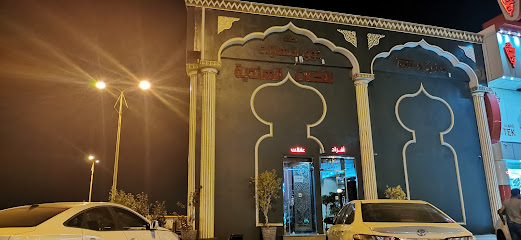
Tamarind Restaurant Jizan- مطعم تمر هند جازان
Experience the rich flavors of India at Tamarind Restaurant in Jizan – where culinary tradition meets modern dining.
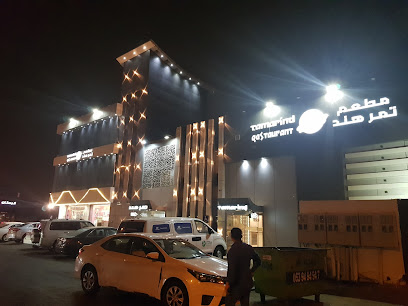
Jeddah Resturant
Savor authentic Turkish cuisine at Jeddah Restaurant in Jazan, where every dish is a celebration of flavor and tradition.
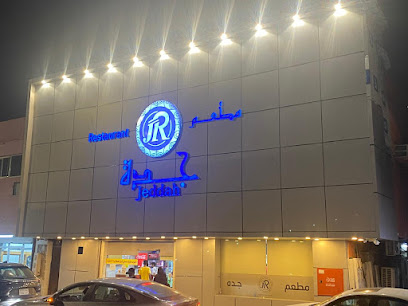
Ocean Basket
Discover Ocean Basket in Jazan - where fresh seafood meets stunning coastal views for an unforgettable dining experience.
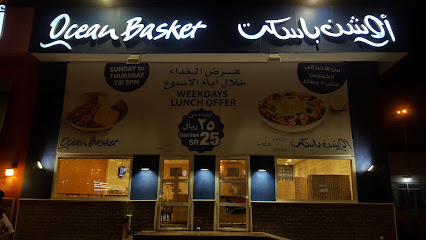
Happy Hospitality Oriental Food
Discover exquisite Oriental cuisine at Happy Hospitality in Jazan - where every meal is a delightful journey through Asian flavors.
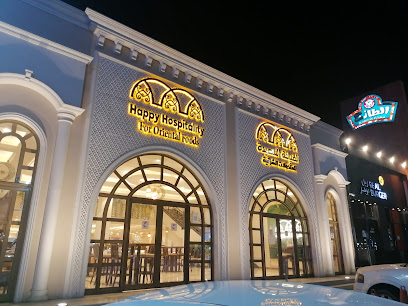
مطعم الجنوب جازان Janoob Jazan Restaurant
Discover authentic Saudi flavors at Janoob Jazan Restaurant – where every dish tells a story of tradition and taste.
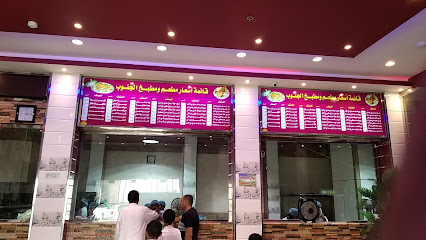
مطعم كوست فيو Coast View
Experience the ultimate seafood dining at Coast View in Jazan with stunning Red Sea views and an exquisite menu that delights every palate.
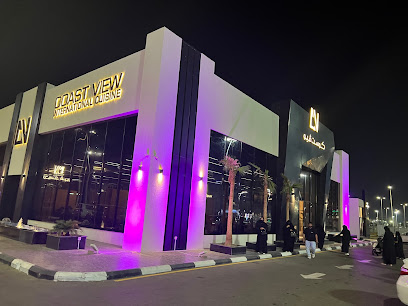
Bander Aden Restaurant
Experience authentic Arabian flavors at Bander Aden Restaurant in Jazan – where every dish tells a story.
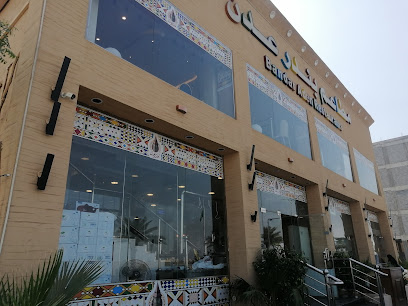
Zorro Restaurant
Discover authentic Saudi Arabian cuisine at Zorro Restaurant in Jazan - where every meal tells a story.
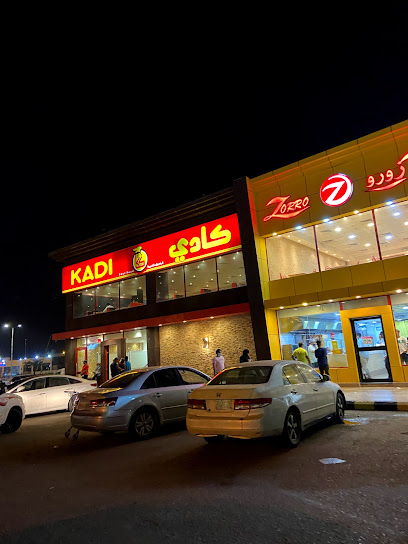
Markets, malls and hidden boutiques
Al Rashid Mall JAZAN
Experience the best of shopping and entertainment at Al Rashid Mall in Jazan, Saudi Arabia, a vibrant hub for tourists and locals alike.
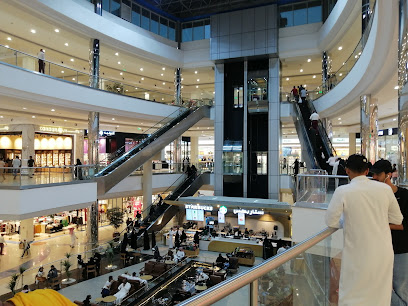
Kadi Mall | كادي مول
Explore Kadi Mall in Jazan: A bustling shopping destination for fashion, dining, and family fun.
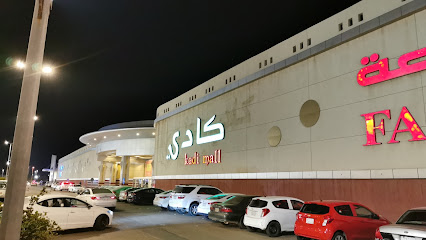
Alshamil Mall
Explore Alshamil Mall in Jazan, a vibrant shopping destination with diverse retail, dining, and entertainment options for all ages.
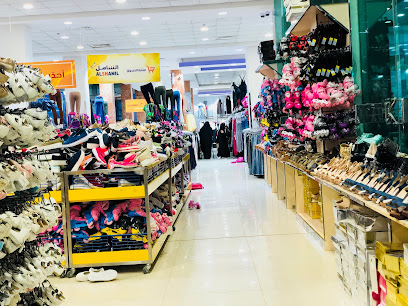
Jarir Bookstore | مركز صيانة معتمد من Apple
Explore the vibrant world of literature, art supplies, and electronics at Jarir Bookstore in Jazan, a must-visit cultural hub for every traveler.
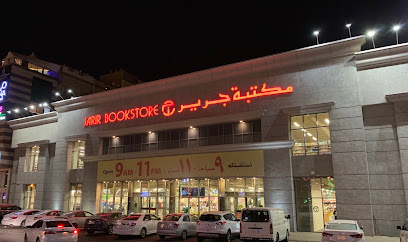
توب سنتر - فرع جازان
Discover Toub Center, Jazan's premier shopping mall with diverse retail, dining options, and a lively atmosphere for tourists and locals alike.
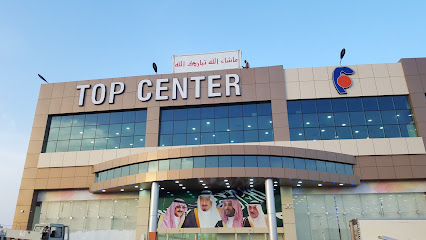
Al Raya - Marina Mall - الراية
Experience the vibrant flavors and fresh produce at Al Raya in Marina Mall, Jazan, your go-to supermarket for all your culinary needs.
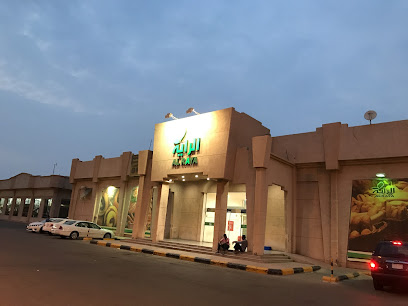
Awqat Saeeda Theme Park
Discover endless fun and adventure at Awqat Saeeda Theme Park in Jazan, where thrilling rides and family-friendly attractions await!
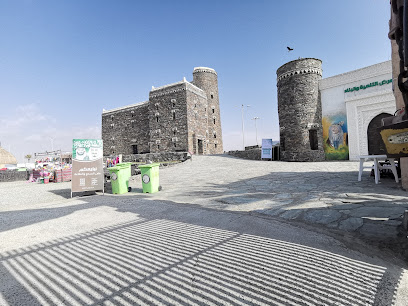
CALI SPECIALTY COFFEE كالي قهوة مختصة
Discover the essence of specialty coffee at Cali Specialty Coffee in Jazan, where passion meets flavor in every cup.
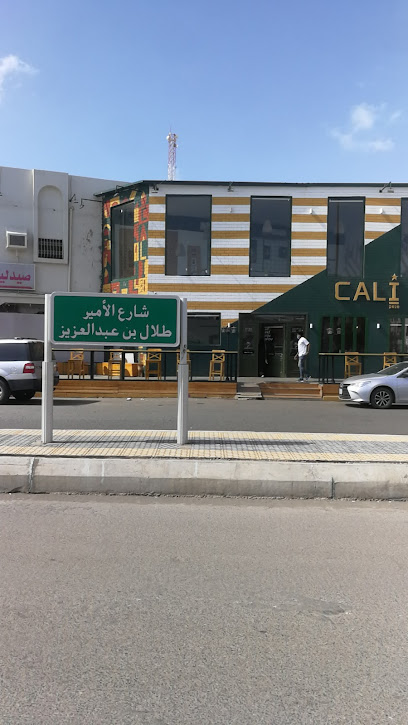
Mazda - Haji Husein Alireza & Co.Ltd
Discover the Mazda dealership experience in Jazan, where quality vehicles meet exceptional customer service.
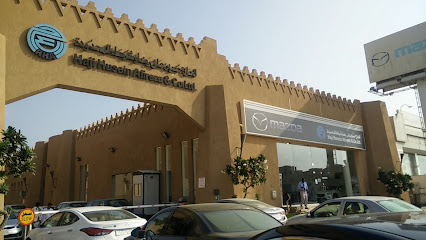
Jazan Mall
Jazan Mall: Your go-to shopping destination in Saudi Arabia, featuring diverse stores, delightful dining, and family-friendly entertainment.
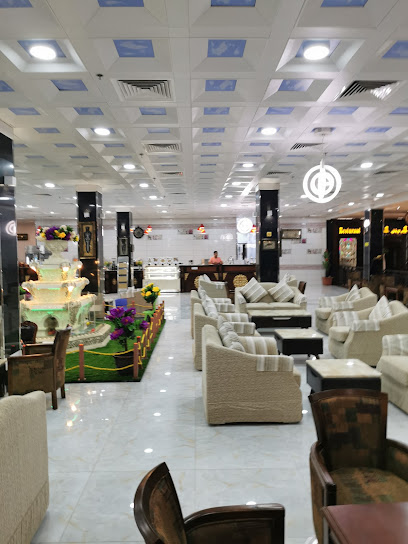
الصيادي للأجهزة المنزلية والالكترونية والتكيف المركزي
Discover a vast selection of home appliances and electronics at الصيادي للأجهزة المنزلية والالكترونية والتكيف المركزي in Jazan, perfect for every home.
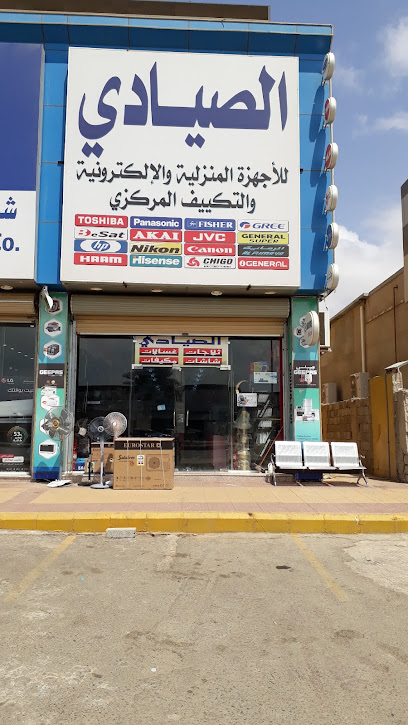
Alamodi Electronic & Electric Devices
Discover the latest in technology at Alamodi Electronic & Electric Devices, your premier electronics destination in Jazan, Saudi Arabia.
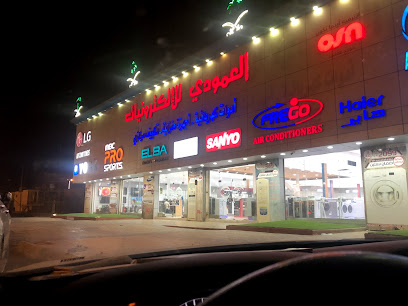
NMC Kia - Showroom الشركة الأهلية للتسويق - المعرض
Explore the vibrant NMC Kia Showroom in Jazan, where cutting-edge vehicles and exceptional customer service come together for an unforgettable experience.
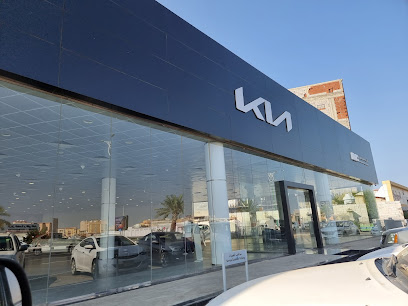
مؤسسة عالم السيراميك والرخام التجارية - جيزان
Explore exquisite ceramic and marble designs at Jazan's top tile store, where craftsmanship meets inspiration for your home and projects.
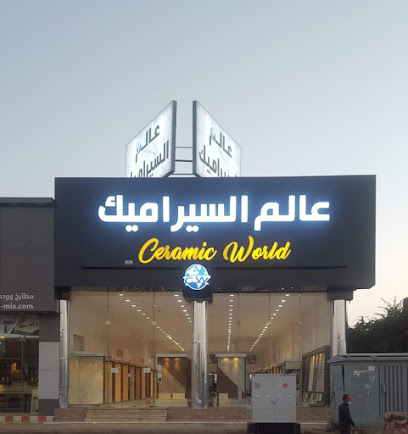
ندى للاثاث
Explore Nida Furniture in Jazan for stylish and affordable furnishings that enhance your home decor with quality and craftsmanship.
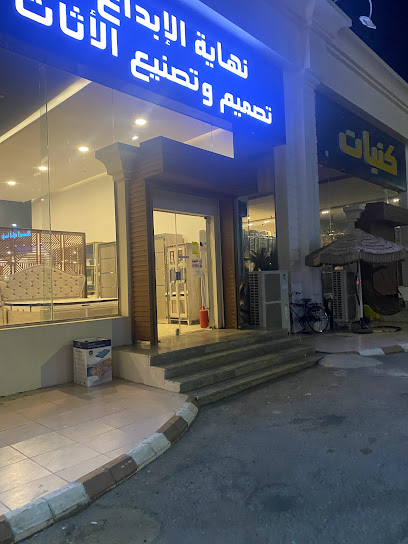
Essential bars & hidden hideouts
Happy times Fish Restaurant
Experience the best seafood in Jazan at Happy Times Fish Restaurant, where freshness meets flavor in a delightful dining atmosphere.
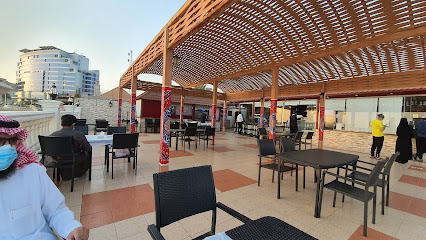
Tamarind Restaurant Jizan- مطعم تمر هند جازان
Experience the vibrant flavors of India and Asia at Tamarind Restaurant Jizan, where culinary excellence meets modern dining.
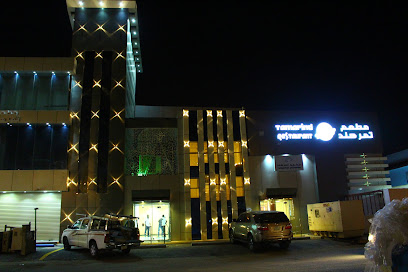
Zorro Restaurant
Experience the vibrant flavors of Jazan at Zorro Restaurant, a culinary hotspot offering a delightful array of traditional dishes in a warm and inviting atmosphere.
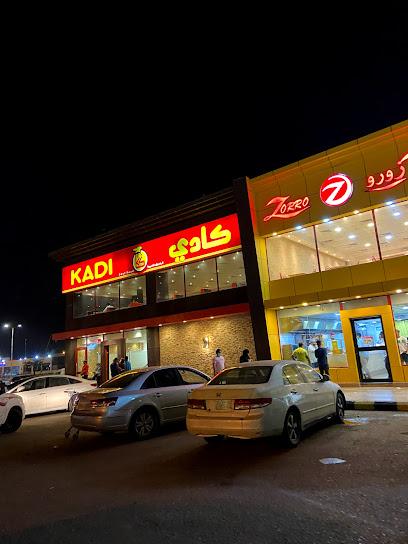
SERON
Experience the culinary artistry of Seron in Jazan, where local flavors meet stunning waterfront views for an unforgettable dining adventure.
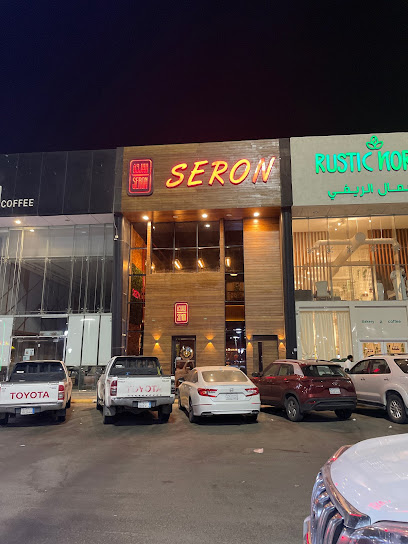
مقهى لفن تريك |LVNTREEK Specialty Coffee and bakery
Experience the perfect blend of artisanal coffee and exquisite pastries at LVNTREEK, Jazan's premier specialty coffee and bakery destination.
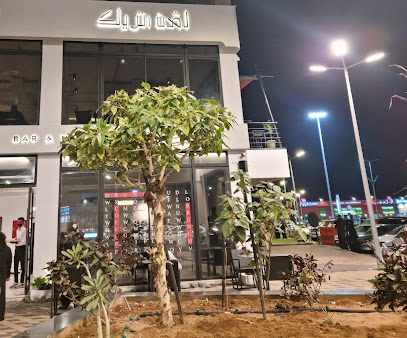
B2 Burger | بي تو برجر
Discover the vibrant flavors of Jazan at B2 Burger, where delicious burgers and a warm atmosphere await food enthusiasts.
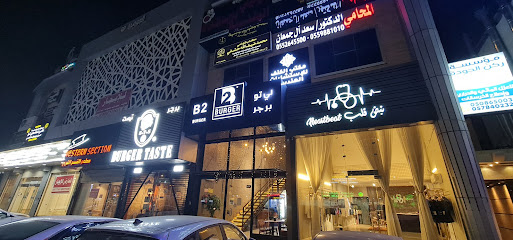
al mazaz المزاز
Discover the vibrant flavors of Al Mazaz in Jazan, where fresh juices, coffee, and healthy salads come together in a welcoming atmosphere.
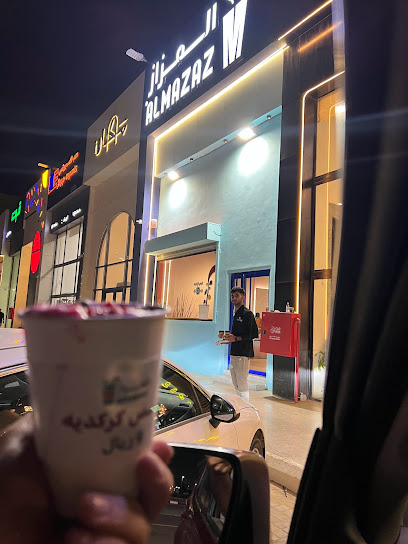
مطعم بهارات القريه
Savor authentic Indian and Chinese cuisine at مطعم بهارات القريه in Jazan, where flavors come alive in a vibrant setting.
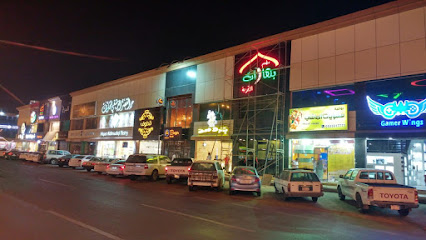
ساوث ويست - SOUTH WEST
Discover South West in Jazan - A Culinary Delight Offering a Fusion of Local and International Flavors in a Welcoming Ambiance.
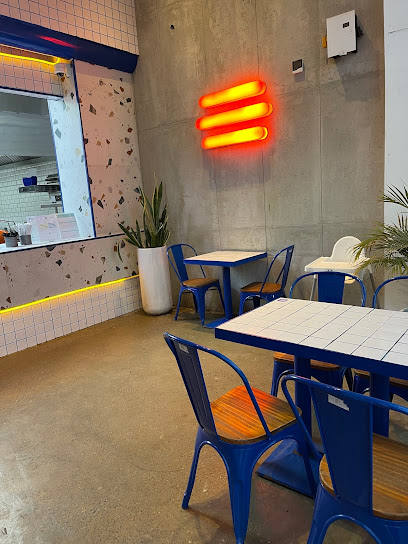
Boja Fast Food
Experience the vibrant local flavors at Boja Fast Food in Jazan, where delicious meals meet warm hospitality.
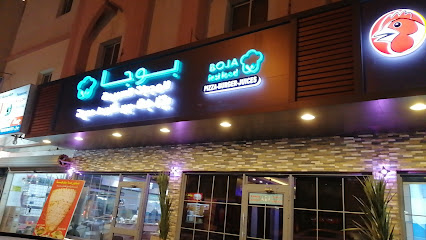
فنكوش شاورما وعصيرات
Discover the authentic taste of Jazan at فنكوش شاورما وعصيرات, where delicious shawarma meets refreshing juices in a vibrant setting.
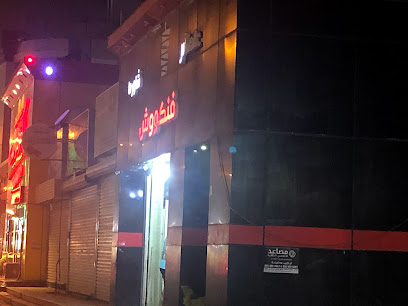
N2
Discover the refreshing taste of artisanal ciders at N2, a vibrant bar in Jazan's stunning Ash Shati district, perfect for unwinding by the coast.
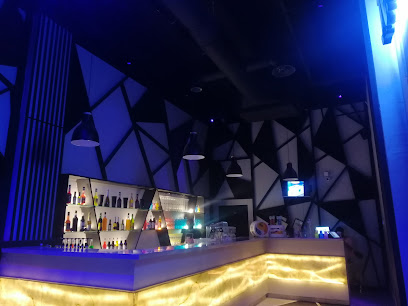
بيهار | BIHAR
Explore the vibrant culinary landscape of Bihar, where traditional flavors and modern dining experiences await every food lover.
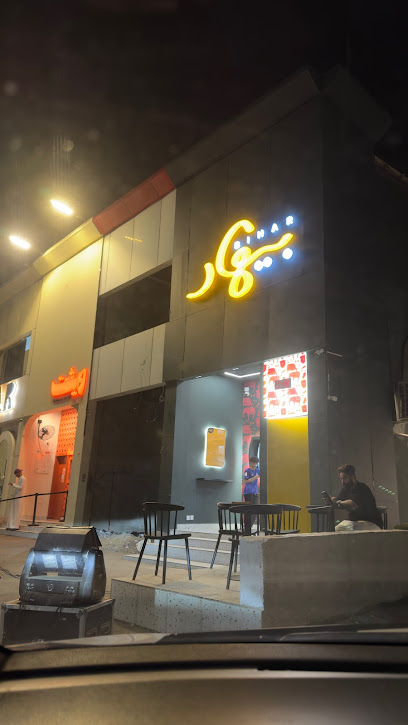
Food Diet Healthy Meals Restaurant
Experience the best of healthy dining in Jazan with fresh ingredients and flavorful dishes at the Healthy Meals Restaurant.
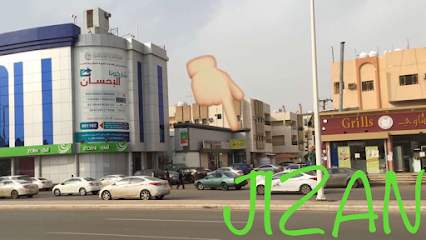
কাচা লংকা রেস্টুরেন্ট জিজান
Discover the rich flavors of Bangladesh at Kacha Lanka Restaurant in Jizan, where every dish tells a story.

Local Phrases
-
- Helloمرحبا
[marhaban] - Goodbyeوداعا
[wadaean] - Yesنعم
[naam] - Noلا
[la] - Please/You're welcomeمن فضلك/على الرحب والسعة
[min fadlik/ala alrahb wasiata] - Thank youشكرا
[shukran] - Excuse me/Sorryعذرا
[azraan] - How are you?كيف حالك؟
[kayf halik?] - Fine. And you?بخير. وأنت؟
[bikhyr. want?] - Do you speak English?هل تتحدث الإنجليزية؟
[hal tatahadath al'inglizia?] - I don't understandلا أفهم
[la afham]
- Helloمرحبا
-
- I'd like to see the menu, pleaseأود أن أرى القائمة، من فضلك
[awad an ara alqaima, min fadlik] - I don't eat meatأنا لا آكل اللحوم
[ana la akl allahm] - Cheers!في صحتك!
[fi sahtak!] - I would like to pay, pleaseأود أن أدفع، من فضلك
[awad an adfae, min fadlik]
- I'd like to see the menu, pleaseأود أن أرى القائمة، من فضلك
-
- Help!النجدة!
[alnajda!] - Go away!اذهب بعيدا!
[adhhab baedan!] - Call the Police!اتصل بالشرطة!
[atassil bialshurta!] - Call a doctor!اتصل بطبيب!
[atassil bithibb!] - I'm lostلقد ضللت الطريق
[laqad dalalt altariq] - I'm illأنا مريض
[ana mareed]
- Help!النجدة!
-
- I'd like to buy...أود أن أشتري...
[awad an ashtari...] - I'm just lookingأنا فقط أتطلع
[ana faqat atalaa] - How much is it?كم سعره؟
[kam sarih?] - That's too expensiveهذا غالي جدا
[hadha ghali jiddan] - Can you lower the price?هل يمكنك خفض السعر؟
[hal yumkinuk kafdh alsarih?]
- I'd like to buy...أود أن أشتري...
-
- What time is it?كم الساعة؟
[kam alsaaea?] - It's one o'clockالساعة الواحدة
[alsaaea alwahida] - Half past (10)النصف بعد العاشرة
[alnusf baed alaashira] - Morningالصباح
[assabah] - Afternoonالظهر
[aldhuhur] - Eveningالمساء
[almasa] - Yesterdayأمس
[ams] - Todayاليوم
[alyawm] - Tomorrowغدا
[ghadan] - 1واحد
[wahid] - 2اثنان
[ithnan] - 3ثلاثة
[thalatha] - 4أربعة
[arbaaa] - 5خمسة
[khamsa] - 6ستة
[sitta] - 7سبعة
[sabaa] - 8ثمانية
[thamania] - 9تسعة
[tasiaa] - 10عشرة
[ashara]
- What time is it?كم الساعة؟
-
- Where's a/the...?أين ...؟
[ayn ...?] - What's the address?ما هو العنوان؟
[ma hu al'ainan?] - Can you show me (on the map)?هل يمكنك أن تريني (على الخريطة)؟
[hal yumkinuk an tarini (ala alkharita)?] - When's the next (bus)?متى الحافلة القادمة؟
[mata alhafilat alqadima?] - A ticket (to ....)تذكرة (إلى ...)
[tazkirat (ila ...)]
- Where's a/the...?أين ...؟
History of Jizan
-
Jizan, historically known as Al-Mikhlaf Al-Sulaymani, has been a vital hub since ancient times. It was part of the ancient Arabian trade routes, connecting Yemen and the southern Arabian Peninsula with the Mediterranean world. The city served as a key port for trade in spices, incense, and other valuable goods.
-
In the early 16th century, Jizan fell under the control of the Ottoman Empire. The Ottomans recognized the strategic importance of the city and fortified it to protect their interest in the Red Sea trade routes. Jizan’s architecture and infrastructure saw significant influence from Ottoman design during this period.
-
In the early 20th century, Jizan became a focal point during the Asir campaign led by King Abdulaziz Al Saud. The campaign was part of his efforts to unify the various regions of the Arabian Peninsula under the Saudi state. By 1930, Jizan was integrated into the Kingdom of Saudi Arabia, marking a new chapter in its history.
-
During World War II, the strategic location of Jizan on the Red Sea made it a significant point of interest. The city was affected by the Allied blockade of the Red Sea, aimed at curbing the supply lines of Axis powers. This period brought about economic challenges as maritime trade was disrupted.
-
In recent decades, Jizan has seen substantial development, particularly with the establishment of the Jazan Economic City. This initiative aims to diversify the region's economy through investments in industries such as energy, manufacturing, and agriculture. The city has also become a focal point for tourism, with its rich cultural heritage and natural beauty attracting visitors from around the world.
-
Jizan is renowned for its vibrant cultural festivals, which showcase the region's unique heritage. The Farasan Islands Festival is a notable event that highlights the local traditions, music, dance, and cuisine. These festivals are a testament to the enduring cultural pride of the people of Jizan.
Jizan Essentials
-
Jizan is located in the southwestern region of Saudi Arabia. The nearest airport is Jizan Regional Airport (also known as King Abdullah Bin Abdulaziz Airport), which offers both domestic and limited international flights. For international travelers, the most common route is to fly into King Abdulaziz International Airport in Jeddah, and then take a domestic flight to Jizan. Alternatively, Jizan can be reached by long-distance buses from major cities like Riyadh, Jeddah, and Abha.
-
Jizan has a variety of transportation options. Taxis are widely available and can be hailed from streets or booked via mobile apps. Car rentals are also available at the airport and in the city. Public buses operate within the city and connect to nearby towns. For a more local experience, you can use shared taxis, known as 'service taxis,' which follow specific routes and are relatively inexpensive.
-
The official currency in Saudi Arabia is the Saudi Riyal (SAR). Credit cards are widely accepted in hotels, restaurants, and larger shops. However, it is advisable to carry cash for smaller establishments, markets, and rural areas. ATMs are plentiful in Jizan, but it's wise to inform your bank about your travel plans to avoid any issues with international transactions.
-
Jizan is generally a safe destination for tourists. However, it is advisable to take standard precautions. Avoid walking alone at night in unfamiliar areas and keep an eye on your belongings in crowded places. While Jizan doesn't have specific high-crime areas targeting tourists, it is always best to stay vigilant and aware of your surroundings.
-
In case of emergency, dial 997 for medical emergencies, 998 for fire, and 999 for police assistance. The local police station and medical facilities are available in Jizan. It is recommended to have travel insurance that covers medical emergencies. For minor health issues, there are pharmacies throughout the city where you can purchase over-the-counter medications.
-
Fashion: Do dress modestly, especially in public places. Avoid wearing revealing clothing. Women should cover their shoulders and knees. Religion: Do respect local customs and Islamic traditions. Avoid public displays of affection and always dress modestly when visiting religious sites. Public Transport: Do be respectful and give up your seat to elderly passengers. Don't eat or drink on public transport. Greetings: Do greet people with a handshake if you are of the same gender. A slight bow of the head is also a sign of respect. Avoid handshakes between men and women unless the woman extends her hand first. Eating & Drinking: Do try local delicacies and accept food offerings graciously. Don’t refuse hospitality, as it is considered impolite.
-
To experience Jizan like a local, visit the traditional souks where you can buy fresh produce, spices, and local crafts. Engage with locals, as they are often friendly and willing to share stories about the region's history and culture. Don't miss visiting the Farasan Islands, which are a short boat ride away and offer stunning beaches and coral reefs. For a unique experience, try traditional Saudi dishes like Kabsa and Mandi at local restaurants.
Trending Landmark in Jizan
-
Al Rashid Mall JAZAN
-
Kadi Mall | كادي مول
-
Novotel Jazan
-
Radisson Blu Resort Jizan
-
King Abdullah bin Abdulaziz International Airport
-
سوق الاسماك بجيزان
-
Al marjan Park
-
The Corniche Park
-
Tourism Dreams Park & Marsa
-
Courtyard Jazan
-
Awqat Saeeda Theme Park
-
Northern Sea Front
-
Adosareyah Castle
-
Lake of Jazan Dam
-
القرية التراثية
Nearby Cities to Jizan
-
Things To Do in Abha
-
Things To Do in Khamis Mushait
-
Things To Do in Najran
-
Things To Do in Sana'a
-
Things To Do in Dhamar
-
Things To Do in Al Baha
-
Things To Do in Ibb
-
Things To Do in Adi Keyh
-
Things To Do in Asmara
-
Things To Do in Dekemhare
-
Things To Do in Keren
-
Things To Do in Mendefera
-
Things To Do in Adi Quala
-
Things To Do in Mekele
-
Things To Do in Axum






